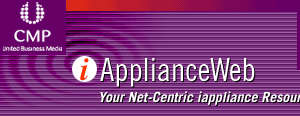



 |
 |
|
|
 |

|
||
|
|
|
|
|||

|
SALT Forum Releases Speech Tag SpecBy Bernard Cole Boston, Ma. --- The SALT Forum has released the final version 1.0 of its Speech Application Language Tags (SALT) specification for deployment on a number of multimodal iappliance and telephony applications. It is available on line at http://www.saltforum.org, marking the conclusion of the SALT specification's first development phase. SALT, it is hoped, will supply a critical missing component that will allow the development of intuitive speech-based interfaces that anyone can master, opening up a wider range of multimedia applications on a variety of multimodal iappliances. The SALT specification defines a set of lightweight tags as extensions to commonly used Web-based programming languages, strengthened by incorporating existing standards from the World Wide Web Consortium (W3C) and the Internet Engineering Task Force (IETF). This allows developers to add speech interfaces to Web content and applications using familiar tools and techniques. In multimodal iappliance applications, the tags can be added to support speech input and output either as standalone events or jointly with other interface options such as speaking while pointing to the screen with a stylus. In telephony applications, the tags provide a programming interface to manage the speech recognition and text-to-speech resources needed to conduct interactive dialogs with the caller through a speech-only interface. The SALT specification is designed to work equally well on traditional computers, handheld iappliance devices such as PDAs, and home electronics such as video recorders, as well as telematics devices such as in-car navigation systems, and communications devices such as mobile phones. Version 1.0 of the SALT specification covers three broad areas of capabilities: speech output, speech input and call control. The specification's "prompt" tag allows SALT-based applications to play audio and synthetic speech directly, while "listen" and "bind" tags provide speech recognition capabilities by collecting and processing spoken user input. In addition, the specification's call control object can be used to provide SALT-based applications with the ability to place, answer, transfer and disconnect calls, along with advanced capabilities such as conferencing. The SALT specification draws on emerging W3C standards such as Speech Synthesis Markup Language (SSML), Speech Recognition Grammar Specification (SRGS) and semantic interpretation for speech recognition to provide additional applicationcontrol. Following previously announced plans, the SALT specification is being submitted to an established international standards body to provide the basis of an open, royalty-free standard for speech-enabling multimodal and telephony applications. |
|
||||||||

Terms and Conditions Privacy Statement |
||||||||||